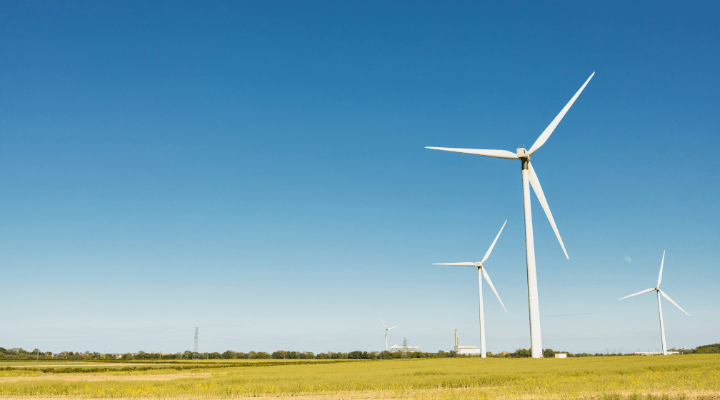What should Ofgem’s new net zero obligation mean? – Inside track
4 min read
This post is by Laura Sandys CBE, chair of Green Alliance and non-executive director of SSE Transmission, Highview Power and Ohme Global.
Many of us, not least the great team at Green Alliance, have been pushing for Ofgem’s remit to include the delivery of net zero. While Ofgem has been focused on decarbonisation of the energy system, the explicit change in its obligations to include net zero now offers new opportunities to integrate and extend its regulatory reach, and add to its priorities in how it regulates the sector.
So, what could this mean in practice?
Importantly, Ofgem will be more accountable to the government, parliament and other bodies such as the National Audit Office in relation to its impact on net zero. While scrutiny and reporting will be important it will be the actual measures taken that will ensure that this is not a hollow obligation.
Here are some actions as a starter:
Fossil fuel biasRegulations and codes scattered across the energy sector have a fossil fuel bias and need to be cleaned out. These include regulations such as the Electricity Distribution Licence: condition 4 which is does not specify low carbon solutions and has resulted in bias toward existing fossil fuel assets. This could be changed to prioritise demand side flexibility and low carbon, a clear merit order. Many other outdated regulatory norms and codes could also be amended to change their bias. While some of these are not in Ofgem’s direct control, they have huge influence to push actors to change underlying biases and, through regulatory powers, to task code operators, who set many of the rules of the electricity system, to clean up their rules so they defer to low carbon defaults.
Make fossil fuel choices difficultWhile there will be some fossil fuel consumption on the system for the foreseeable future, there is a need for behaviour change throughout the energy sector. Ofgem has a leading role in creating more friction for operators choosing fossil fuel options. It should require networks and the Electricity System Operator (ESO) and distribution networks to provide public justification for why they had to resort to fossil fuel solutions to balance the system and deliver flexibility. The system operators should have to outline other options they considered and why low carbon solutions were not suitable. This would create increased bureaucracy and internal systems for the companies that weren’t either promoting or choosing non-fossil fuel options. While this might seem like a soft measure, increasing the internal bureaucratic burden will change behaviour away from the ‘ramp up the gas’ default. It would also help support flexibility and storage providers who often complain that gas is still the default.
Less energy is betterOfgem has significant agency and influence on how energy policy is developed. Incentives throughout the sector are designed around quantity of energy consumed with no value for efficiency. Several tools exist for Ofgem, not least its input into retail reform, moving from commodity to service providers. In addition, there have been some excellent pilots – now forgotten – where periodic voltage reductions significantly reduce cost and energy intensity. Reviewing all the great innovation projects and turning them from one-offs into business as usual would drive much greater efficiency, lower carbon and cost reductions across the whole system.
Methane leakageThe UK signed up to the Global Methane Pledge at COP26 in Glasgow and Ofgem needs to be much more focused on driving down leakage through the price control conditions. Facilitated by cheap technology, it would also help with safety measures. This should be at the core of Ofgem’s drive towards combating climate change.
Whole system costsAcross the regulatory framework, Ofgem needs to break down the silo costings of the system and use whole system costings and carbon intensity. This is an accepted approach, but it’s not used as extensively as it should be. This could change the approach to the networks and how the whole system is evaluated.
The next price control reviewThe up and coming next price control review is an important opportunity for Ofgem to build out a stronger low carbon framework for all the networks. In network terms, this review will set their shape for the next 30 years, so the regulatory approach needs to be future fit and ready. Some key measures could be tightened up and this includes the ESO’s management of the system, with regulatory targets to bring down the carbon intensity of the system over time. In addition, unnecessary network losses still on the system are inadequately reported or addressed through more action and innovation. Several technologies exist to reduce losses and increase optimisation of the system. In some countries, networks are expected to absorb the cost of these losses, while, in the UK, the customer picks up the cost. Efficiency must sit at the heart of net zero.
Net zero is not just carbonWith Ofgem’s regulatory reach into many of the largest energy companies in the country, it has a big opportunity to drive more action around biodiversity and nature. It has already started to expect biodiversity strategies and some companies have made strong commitments throughout this current price review. However, more can be expected which would add to a more positive public attitude to large infrastructure developments. In addition, the resilience of new infrastructure can be enhanced by greater focus on nature and nature-based infrastructure solutions.
Many people will have other thoughts around what this new remit could include but this is a journey for Ofgem, as well as for the energy sector, so let’s start here.





